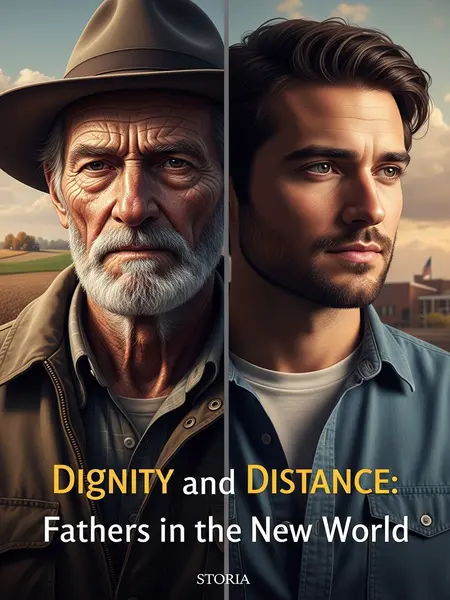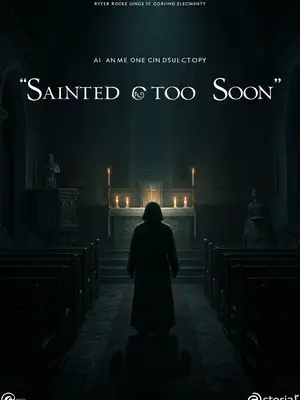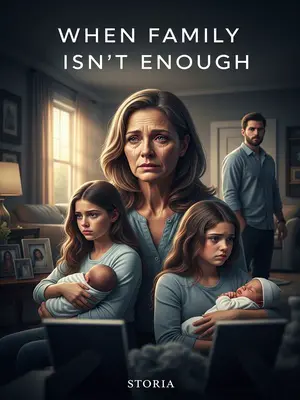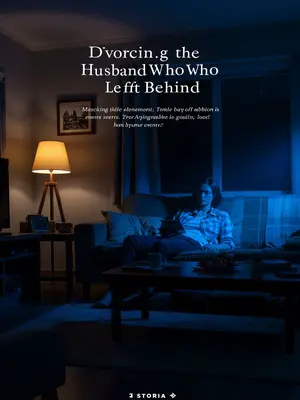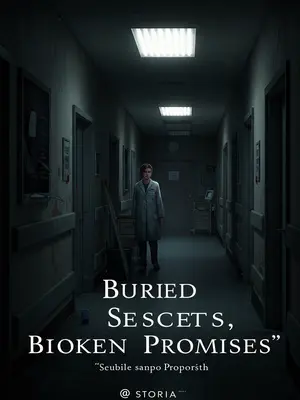Chapter 3: Grit and New Beginnings
I imagine the weight of that moment—one last look, a silent goodbye to everything he’d ever known.
Sometimes, you have to leave the past behind to save yourself. Old Hank understood that better than anyone.
My Birth
A few years later, Old Hank, through pure grit, got into a night program at the community college—oldest student in the class.
He’d work the day shift at the plant, then hit the books at night. I picture him hunched over a battered desk, calloused hands turning the pages, rubbing tired eyes. He must have felt out of place among all those younger students, but he stuck it out. He wanted more.
Old Hank kept to himself, but his grades were top-notch. My mom later told me that back then, Old Hank was steady and mysterious, and a lot of girls whispered about him.
He was the quiet guy in the back row, never missed a class, always had his assignments in on time. My mom said he had this old-school charm that made people wonder what he was thinking. Girls noticed him, but he didn’t seem to notice anyone—until he met my mom.
My mom was from Detroit, blue-collar roots, gentle, good at stretching a dollar. Back then, Old Hank would bring two slices of white bread for lunch every day. One day at noon, he opened his metal lunchbox and was shocked to find a thick layer of roast beef inside. He caught my mom’s eye—she looked away, pretending not to notice.
It was a small thing, but it meant everything. Back then, roast beef was a treat—a sign that someone cared enough to go the extra mile. My mom was shy but practical; she knew how to show love without saying a word.
According to my mom, roast beef was expensive at the time. She’d bike out to the suburbs to buy leftover cuts from farmers, then slow-cook them at home, figuring it saved her half the money. From then on, Old Hank’s sandwiches always had roast beef inside.
I can see her now, pedaling through the chilly Michigan air, scarf pulled tight, determined to make something special for the man she’d quietly fallen for. That’s how love starts sometimes—not with fireworks, but with a sandwich packed with care.
Old Hank started to feel responsible for her. During finals, he did the most questionable thing of his life: ten minutes before handing in the test, he swapped papers with my mom.
He wasn’t a rule-breaker, but love makes you do strange things. He’d never admit it, but I think he wanted to give her a boost, to help her shine in a world that didn’t always give women a fair shake.
With Old Hank’s help, my mom became the surprise valedictorian that year and landed a job at Detroit Edison, the biggest power plant around. On her first day, she was doing on-the-job training at a construction site, and in the crowd, she spotted Old Hank, also in a hard hat, giving her that shy smile.
It must have felt like fate—two kids from working-class families, finding each other in a maze of steel and wires. Their paths kept crossing, and pretty soon, everyone at the plant knew they were together.
Old Hank and my mom worked at the same plant, on different teams. Naturally, the next year their coworkers ate their wedding cake.
It was a simple wedding—sheet cake in the break room, everyone all dressed up. But for them, it was perfect. They had each other, and that was enough.
One day in 1979, Old Hank was up on a utility pole fixing cables when he heard a coworker shout: “Your wife’s having the baby!” Old Hank scrambled down and biked to the hospital. The usual twenty-minute ride took him less than ten.
I can picture him barreling through city streets, heart in his throat, legs pumping so hard he nearly flew off the pedals. He must have broken every traffic rule, but nothing was going to keep him from the hospital that day.
But my mom didn’t come out of the delivery room for a long time. Old Hank, who never smoked, smoked an entire pack at the door. According to my grandma, Old Hank’s hands were shaking.
He paced the linoleum floor, hands trembling, eyes glued to the swinging doors. Each time a nurse walked by, he’d look up, hope flaring and fading. The smell of cigarettes clung to his jacket, sharp and bitter, a nervous habit he’d never had before or since.
“Complications, family signature required.” The long wait brought the words Old Hank feared most.
Those words hit like a punch. He’d faced loss before, but nothing prepares you for the possibility of losing the people you love most. The world seemed to shrink to the size of that hospital corridor.
Old Hank was paralyzed, his pale lips trembling as he said, “Take my blood, take whatever you need.”
He didn’t know what else to offer. All he had was himself, his own flesh and blood. In that moment, he would have given anything—anything—to make sure his family was safe.
Old Hank always thought saving people meant blood transfusions. Like, if there was enough blood, there was no reason to die.
It’s a simple, desperate logic. If you can give enough, if you can pour yourself into someone else, maybe you can keep them alive. Maybe you can keep the darkness away.
At that moment, my grandma hugged Old Hank tightly, stroking his back. She later said, at that moment, she and Old Hank felt something pass between them. She knew what Old Hank feared—they both thought of my granddad, of him in the barn, blood flowing but unable to be saved, and the patch of dark red that wouldn’t fade for months.
It was a grief that echoed across generations. My grandma, always the quiet strength behind the family, held him as if she could will the past away. In that embrace, they shared a fear that words could never touch.
At that moment, whether my mom and I lived or died, for Old Hank, it meant salvation or destruction. He would have traded his own patch of dark red for a bright new life.
He must have bargained with every power he believed in, promising anything, everything, if only things could turn out differently this time. The memory of his father’s death was still raw, a wound that never quite healed.
About my birth, I don’t know if it was as dramatic as they say. But the ending was happy: I was born, and my mom was safe.
